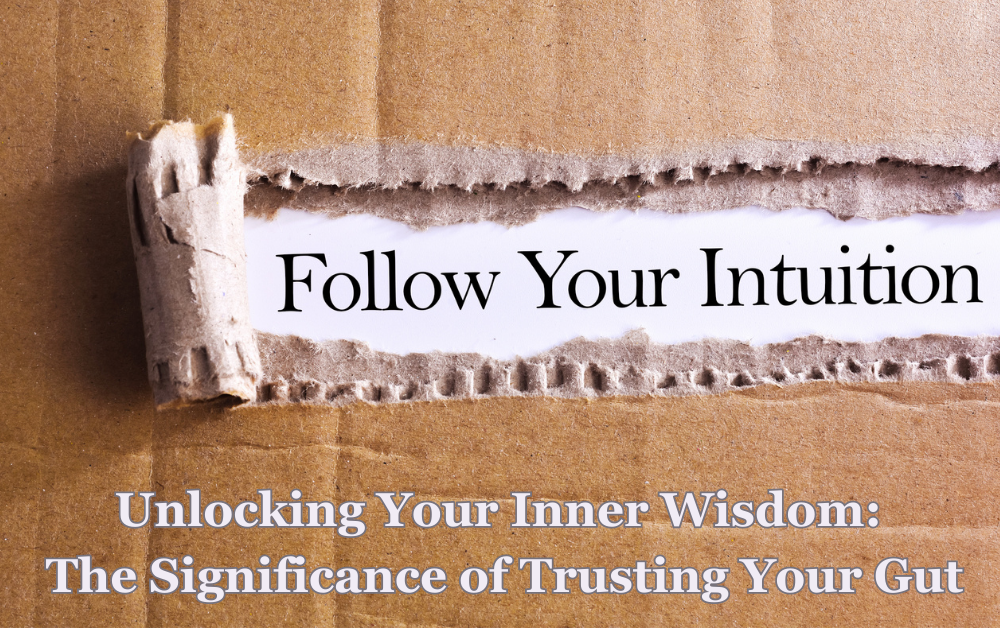Have you ever experienced that inexplicable pull in your gut or a flutter in your heart, urging you to take a particular action or make a decision?
It’s a feeling that defies logic yet resonates deep within your being.
We call it our gut instinct, and far too often, we ignore its whispers, favoring the voice of reason instead.
But what if I told you that there’s something profoundly wrong with dismissing that inner knowing?
Let’s delve into some gut instincts that should never be brushed aside:
When You Feel Like You’re in Danger
Your gut instinct is a reflection of what your subconscious mind already knows.
Even if you can’t consciously articulate it, trust in that intuitive feeling when it warns you of potential danger or harm.
Your gut is trying to protect you, to guide you away from situations that could compromise your well-being.
It’s a primal survival mechanism that shouldn’t be ignored.
When You Feel Like Something Isn’t Right
There are moments when you’re engaged in an activity or considering a choice, and you get an unmistakable feeling that it’s not aligned with your true self.
Listen closely to that inner voice.
It’s telling you that there’s a mismatch between your authentic desires and the path you’re on.
Whether it’s a project, a job, or a relationship, your gut instinct urges you to reevaluate and make a change.
When You Feel a Resounding “Yes”
Have you ever encountered a situation that triggers an overwhelming sense of certainty?
It’s as if every fiber of your being is shouting “Yes!” Pay attention to that powerful feeling.
It could be a sign that you’ve stumbled upon something truly significant and aligned with your purpose.
Your gut instinct acts as a compass, leading you to the experiences and opportunities that resonate with your soul.
Now, why is it so crucial to honor and listen to your gut instinct?

It Nurtures Self-Respect
Your gut instinct is the voice of your intuition, a collaboration between your conscious and subconscious mind.
Recognizing and honoring this innate wisdom is a vital aspect of self-respect.
While societal pressures and external opinions may influence your decisions, your gut instinct is a reminder to look within and honor your own truth.
By prioritizing your inner voice, you cultivate a deep sense of self-respect and authenticity.
It Refines Your Intuition
Gut instincts go beyond primal instincts; they tap into the vast knowledge stored within you.
Your brain processes information and stimuli, forming patterns and associations that guide your intuition.
As you accumulate life experiences, your gut instinct becomes more finely attuned.
Even in new situations, it serves as a valuable tool to ask questions, identify potential risks, and make informed choices.
It Reveals Your Inner Strength
In moments of vulnerability and self-doubt, your gut instinct acts as a steadfast companion, reminding you of your resilience and inner strength.
We often suppress it due to societal conditioning that prioritizes logic and reasoning above all else.
However, there are times when the brain is clouded by negative emotions or panic, compromising our ability to believe in ourselves.
It is during these moments that our gut instinct shines brightest, guiding us towards our true potential and reminding us of our inherent strength.
By acknowledging and embracing the power of your gut instinct, you unlock a profound source of wisdom and guidance.
It’s a testament to your innate wisdom and resilience, urging you to trust yourself and navigate life’s twists and turns with confidence.
So, the next time that intuitive whisper tugs at your soul, listen closely.
Your gut instinct is there to remind you of your authenticity and guide you on the path towards fulfillment and self-discovery.
Remember, your gut instinct is not a force to be silenced or disregarded.
It is a gift, an inner compass that can lead you to a life of alignment and purpose.
Here are some ways to cultivate a stronger connection with your gut instinct:
Cultivate self-awareness: Take time for self-reflection and introspection.
Tune in to your emotions, thoughts, and physical sensations.
Notice how your body responds to different situations and decisions.
The more self-awareness you develop, the easier it becomes to recognize and trust your gut instinct.
Practice mindfulness: Engage in mindfulness practices such as meditation, deep breathing, or mindful movement.
These techniques help quiet the noise of the external world and allow you to connect with your inner wisdom.
Mindfulness enhances your ability to listen to and honor your gut instinct.

Journaling: Write down your thoughts, feelings, and experiences.
Journaling helps you gain clarity and insight into your inner world.
You can also use journaling as a tool to reflect on past decisions and their outcomes.
Look for patterns and correlations between your gut instinct and the outcomes of your choices.
Trust the process: Building trust in your gut instinct takes time and practice.
Start with small decisions and observe how your gut instinct guides you.
Notice the outcomes and learn from them.
As you witness the alignment between your gut instinct and positive results, your trust in it will grow.
Remember, your gut instinct is unique to you.
It may not always align with societal norms or logical reasoning, but that makes it valuable.
Trust yourself and have faith in your inner wisdom.
Embrace the courage to follow your gut instinct, even if it goes against the grain.
It is through honoring and acting upon your authentic guidance that you can create a life filled with fulfillment, purpose, and joy.
Your gut instinct is a powerful and reliable tool for navigating life’s challenges and choices.
By paying attention to its whispers, you can make decisions that are aligned with your true self and lead to greater fulfillment.
Cultivate self-awareness, practice mindfulness, journal, and surround yourself with supportive individuals who value intuition.
Trust the process and have faith in your innate wisdom.
Your gut instinct is there to guide you toward a life of authenticity and purpose.

